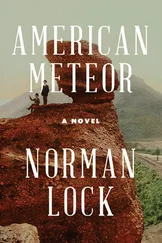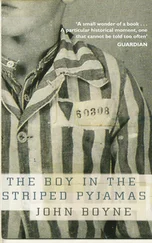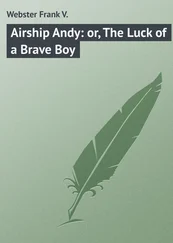ON MAY 10, 1862, WE ARRIVED at Plum Point Bend, where a naval engagement between the Confederate River Defense Fleet and a squadron of Union ironclads was in noisy progress. I should describe the ships’ maneuvering, the skirmishing of men on either side, the confusion and alarms. I ought to give an account of the battle’s importance, and because the American Civil War is relatively ancient history, I should summarize its causes (having more to do with Jim and his family than with me and mine). But at this moment, I prefer to note the color of the water, the behavior of clouds and cannon smoke in the changeable wind, the elegant figures traced by birds against the reeling sky.
You say I have a duty to history.
Having been in history as long as I have relieves me of any further obligation to it.
You say I have a duty to readers to flesh out my story.
Sorry, but I find such fleshing-out to be tedious and beside the point.
You want to know what my point is in all this?
I’m not sure. You see I am, at least, honest. But I think “all this” has to do with ideas of time and the secret confluences by which we arrive at points in our own histories. But because I do not wish to be remembered (if I will be remembered) as a self-indulgent fantasist, I’ll skip the purple patch for now, however much I wish to write it. I need to make amends for my indifference, for having turned my back on the world in favor of the beauties of the way. I’ll try to study cruelty (I regret my own) and render it in more familiar terms. But something of Mark Twain’s playfulness, his habit of fantasizing and exaggerating must have rubbed off on me. How could it be otherwise? So this account of my life must be impure: a mixture of high-minded tragedy and lowborn comedy. At Plum Point, at this moment in time, I was more interested in the rude clash of ships and ironclads than in grand ideas or my moral misdeeds and childish stupidity. (How could I have imagined that—215 years in the future — I’d be preparing to leave time once more and, in all probability, never come back to it?) I had the smell of gunpowder up my nose, and no other smell is so exciting to the boyish imagination.
Yes, yes! I am an old man and may have forgotten how the scent of a woman has power to inflame! But if you’re to be the secretary of my memories, you had better learn to flatter me. I’d have used a Dictaphone, but I dislike machinery that does not hum or clank — crude sounds that give it humanity.
Plum Point.
The General Sumter had rammed and driven off the Union ironclad Cincinnati. I’d seen the General Sumter many times before, on the river near Hannibal, when she was the Junius Beebe, a side-wheeled steamer working as a tow. She’d been outfitted in Algiers, Louisiana, with iron plates covering her bow and commissioned as a ram for the Confederacy. She was giving the Union boats hell, and I had my hat off to her when the Cincinnati ran aground. I could see Jim didn’t approve of my enthusiasm, but at the time I thought no more of the skirmish than if I’d witnessed a contest of battling eggs or a ruckus in the schoolyard. My conscience was raw and unformed.
On the General Sumter , three Confederate officers were leaning on the upper-deck railing, when one of them straightened up and began to shout toward us, “Ahoy! Huckleberry Finn!”
He and I might have been parted by fifty yards of water and twenty-seven years when we’d gone our separate ways, but I knew at once and without doubt that the officer waving to me was Tom Sawyer! He climbed down the ladder onto the lower deck and, shortly, was making toward us in a skiff rowed by two rebel sailors. Jim was in a panic, for he could expect nothing but the whip and the shackle from representatives of Jeff Davis’s government. And I couldn’t be sure that Tom hadn’t become a dyed-in-the-wool Confederate since I had seen him last; he came from Missouri and had grown up surrounded by slaves who called him “young master.”
“Play dead, Jim,” I said.
Jim fell facedown onto the raft, where he gave a convincing portrayal of a man departed from this earth. I never did fathom how, in that desperate moment, he had managed to suppress the natural shiver that comes to a human being in fear for his life. I threw a blanket over his head and laid a piece of fatback on his naked back. It looked just like mutilated flesh, and to complete the illusion, I pried open the tin can where we kept putrefied chicken gizzards, a sovereign bait for catching catfish. As the skiff pulled alongside, Tom and his crew hesitated in the presence of so formidable a stink. I had my knife and appeared to be cutting a strip of meat from Jim, as though hunger had driven me to the extremity of cannibalism.
“Hello, Huck,” said Tom, eyeing me with a look of profound disappointment at how low I had fallen. “Are you eating that n——?”
“I am, Tom,” I said. “Hunger’s made me do it.” I cut off another strip of pinkish meat, put it in my mouth, and chewed noisily. Jim never moved a muscle.
One of the sailors vomited over the side of the skiff. I was pleased to see that my theatrics were appreciated. (Wasn’t the raft a kind of stage on which we played parts assigned to us by someone else?)
“Might that be Jim you’re dining on?” Tom asked.
“It is,” I said. “He keeled over day before yesterday of starvation. His last words to me were to eat him before he spoiled.”
“Smells like he’s gone off some,” said Tom, his finely shaped nose hunting the air as if for the departing atoms of his childhood, instead of the deceased slave he’d frequently bedeviled.
“Hotter than usual for the time of year — don’t you think so, Tom?”
He nodded in agreement, and I admired how well he had grown into a man. He had dash, and his looks had ripened into a dark handsomeness. At thirty-eight, he looked about as striking as a man can in a Confederate uniform.
“Jim was a good n——,” he said. “Makes me glad to see him dead, else I’d have had to hang him for a runaway.”
I thought for sure Jim would scream or make a commotion, but he didn’t — aware, doubtless, of the gravity of his situation.
“Care for some?” I asked, indicating the place on Jim’s back I’d been carving.
“No, thank you, Huck,” said Tom, with the nice manners of an officer and a gentleman.
“How ’bout you boys? Care for some dead n——?” I was sure Jim would forgive me for using that hateful word in the name of verisimilitude.
I am not one to curry favor, but for Jim’s sake, I smiled at the pair of Mississippians; for so I knew them to be from the timbre of their voices. They refused me. Fortunately, not one of the three men in gray showed any desire to take a look at Jim’s face hidden under the blanket.
“You don’t look a day older, Huck,” said Tom, who bore his early middle age splendidly.
“I’m still only thirteen,” I said.
“How’s that?”
“Don’t know,” I said.
Our conversation was suddenly becalmed, but Tom seemed reluctant to go. He and I had been the best of friends, and maybe he thought we should speak fondly of the days of our common boyhood on the wharves and mudflats of Hannibal. But apparently he could find nothing more to say. As for me, I was nervously waiting for him and his oarsmen to be gone. Just then, a bell rang out merrily on the General Sumter.
“Lunch is ready!” said Tom, suddenly discovering his appetite. “Row us back to the boat, boys,” he said, taking his seat in the stern. “It was swell to see you again, Huck.”
“Same here, Tom.”
“You take good care, now.”
“I’ll try,” I said.
And then Tom was gone from our lives, and Jim could breathe once again like a living man.
Читать дальше












